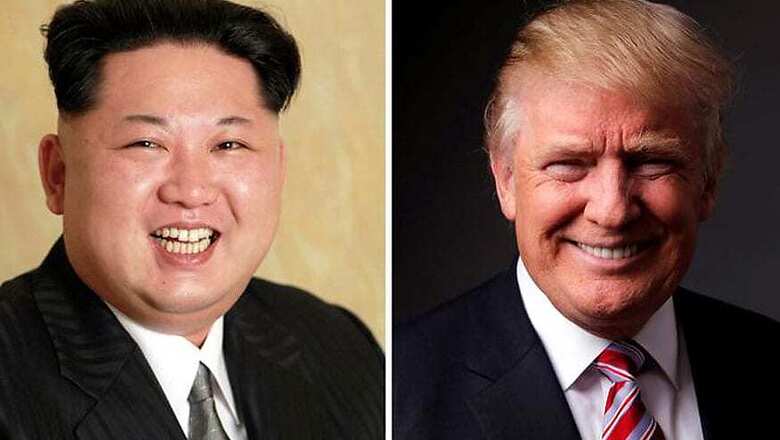
views
Seoul: North Korean state media warned the United States of a "super-mighty preemptive strike" after US Secretary of State Rex Tillerson said the United States was looking at ways to bring pressure to bear on North Korea over its nuclear programme.
US President Donald Trump has taken a hard line with North Korean leader Kim Jong Un, who has rebuffed admonitions from sole major ally China and proceeded with nuclear and missile programmes in defiance of U.N. Security Council sanctions.
The Rodong Sinmun, the official newspaper of the North's ruling Workers' Party, did not mince its words.
"In the case of our super-mighty preemptive strike being launched, it will completely and immediately wipe out not only US imperialists' invasion forces in South Korea and its surrounding areas but the US mainland and reduce them to ashes," it said.
Reclusive North Korea regularly threatens to destroy Japan, South Korea and the United States and has shown no let-up in its belligerence after a failed missile test on Sunday and a huge display of missiles at a parade in Pyongyang.
Tillerson told reporters this week that the United States was "reviewing all the status of North Korea, both in terms of state sponsorship of terrorism as well as the other ways in which we can bring pressure on the regime in Pyongyang."
US House of Representatives Speaker Paul Ryan said during a visit to London the military option must be part of the pressure brought to bear.
"Allowing this dictator to have that kind of power is not something that civilised nations can allow to happen," he said in reference to Kim.
Ryan said he was encouraged by the results of efforts to work with China to reduce tension, but that it was unacceptable North Korea might be able to strike allies with nuclear weapons.
North and South Korea are technically still at war because their 1950-53 conflict ended in a truce, not a peace treaty.
The United Nations Security Council on Thursday condemned North Korea's latest failed missile test and demanded Pyongyang not conduct any more nuclear tests, in a statement that had been delayed as the United States and Russia sparred over language.
A North Korean missile blew up almost immediately on its test launch on Sunday, the US military said. The 15-member Security Council traditionally condemns all such launches by Pyongyang.
'MAX THUNDER'
South Korea's acting president, Hwang Kyo-ahn, at a meeting with top officials on Thursday, repeatedly called for the military and security ministries to maintain vigilance.
The defence ministry said US and South Korean air forces were conducting an annual training exercise, codenamed Max Thunder, until April 28. North Korea routinely labels such exercises preparations for invasion.
"We are conducting a practical and more intensive exercise than ever," South Korean pilot Colonel Lee Bum-chul told reporters. "Through this exercise, I am sure we can deter war and remove our enemy's intention to provoke us."
The North has said it has developed a missile that can strike the mainland United States, but officials and experts believe it is some time away from mastering the necessary technology, including miniaturising a nuclear warhead.
William Perry, who served as US defence secretary from 1994 to 1997 and negotiated with North Korea, said he did not believe Pyongyang was planning a surprise attack, despite the fiery rhetoric.
But he warned: "They are doing a lot of bluster and a lot of threats, and they might misplay that hand and blunder into a war."
South Korean presidential candidates clashed on Wednesday night in a debate over the planned deployment in South Korea of a US-supplied Terminal High Altitude Area Defense (THAAD) anti-missile system, which has angered China.
On Monday, Hwang and Pence reaffirmed their plans to go ahead with the THAAD, but the decision will be up to the next South Korean president. China says the system's powerful radar is a threat to its security.
There had been confusion over the whereabouts of a US aircraft carrier group after Trump said last week he had sent an "armada" as a warning to North Korea, even as the ships were still far from Korean waters.
The US military's Pacific Command explained that the USS Carl Vinson strike group first had to complete a shorter-than-planned period of training with Australia. It was now heading for the Western Pacific as ordered, it said.















Comments
0 comment